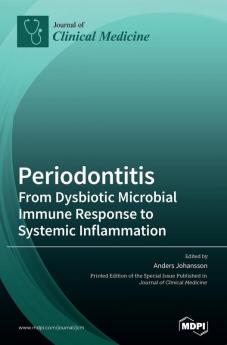English
Hardback
₹3917
₹3971
1.36% OFF
(All inclusive*)
Delivery Options
Please enter pincode to check delivery time.
*COD & Shipping Charges may apply on certain items.
Review final details at checkout.
Looking to place a bulk order? SUBMIT DETAILS
About The Book
Description
Author
<p>Periodontitis is an infection-induced inflammatory disease accounting for huge healthcare costs and socio-economic impacts. Bacteria from the indigenous oral flora colonize the interspace between the tooth and the connective tissue which induces an inflammatory response. If the bacteria proliferate and release virulence factors they cause an imbalance in the host inflammatory response that induces degenerative processes in the surrounding tissues. This process is often slow and the disease affects mainly older people but the process could be rapid and affect young individuals if certain pathogens colonize the area. The two most studied periodontal pathogens Porphyromonas gingivalis and Aggregatibacter actinomycetemcomitans express virulence factors including proteases and exotoxins. Periodontal bacteria and their products can be translocated to the peripheral circulation and are therefore linked to the risk pattern of several systemic diseases. However it is not known if the increased risk for systemic disease associated with periodontitis is an effect of the invading bacteria and/or their released products the release of components from the local inflammatory response or a common host susceptibility pattern. The most studied periodontitis-associated systemic diseases are cardiovascular diseases and rheumatoid arthritis. Here we want to shed light on mechanisms behind the associations of periodontal infections with systemic inflammation.</p>
Delivery Options
Please enter pincode to check delivery time.
*COD & Shipping Charges may apply on certain items.
Review final details at checkout.
Details
ISBN 13
9783039435074
Publication Date
-18-11-2020
Pages
-122
Weight
-315 grams
Dimensions
-170x244x8.27 mm











